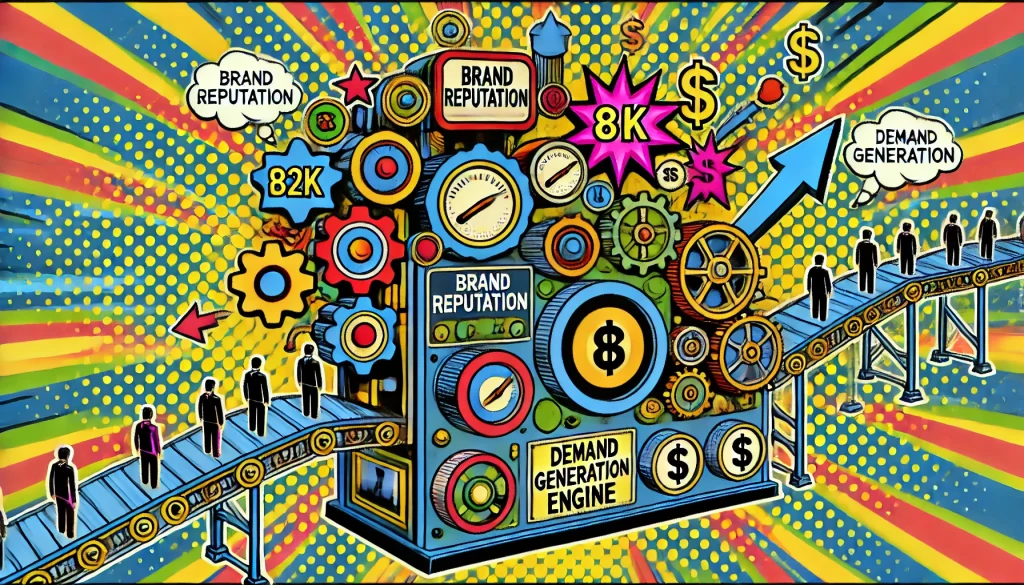It’s not easy to connect with decision-makers through effective B2B marketing. Splashy advertising and omnipresence can get your business noticed and possibly turn some heads. Even the strongest B2B marketing or Industrial Marketing will not prevent decision-makers from turning to their existing networks first when it comes to making the payment. And, why wouldn’t they? It’s a smart method to reduce risk, shorten the vetting process, and solidify those crucial industry partnerships currently in place.
According to a recent B2B poll, decision-makers acquire information from B2B marketing, industry journals, and excellent vendor content, but it’s the recommendations of industry peers and colleagues that have the most significant influence on their ultimate decision. When you tap into your business networks, you’re tapping into relationships based on shared experiences, values, and aspirations — partnerships that are presumably looking out for your best interests.
And decision-makers must demonstrate that they’ve done their homework and reduced the overall risk. After all, their professional reputation is on the line, and their employment may be on the line as well.
In the B2C world, this phenomenon is routinely exploited, with corporations commonly portraying themselves as a customer’s buddy or confidante. When your brand is attempting to engage and change another firm into a partner, things are a bit different.
Building Trust in Your Business
Your approach should utilize or leverage a network-first system and its naturally trust-based character to sell successfully in the B2B industry. This team of seasoned professionals will assist you in establishing credibility and trust in your brand and services.
A business might go about doing this in a few different ways. Begin by sharing your knowledge. Take on the position of an unbiased expert — an authoritative voice with no vested interests – wherever possible. Depending on your business and industry, you can achieve this through individual experts or as part of a company-wide approach.
As a consultant, you may create in-depth case studies that demonstrate novel approaches to solving problems and present them in person or online. A corporation might provide larger-scale research-based products, such as whitepapers or articles, that feature primary research and provide in-depth analysis and new insight – all while remaining objective. These materials can be shared online or presented at industry events such as seminars, conferences, and trade shows.
- Age/Gender
- Relationship Status
- Occupation
- Hobbies
- Purchasing habits (i.e., brands they like, stores where they shop, etc.)
- Subscriptions to publications or reading material
With this knowledge, you can align your website and content to give information that people find useful, entertaining, and engaging—a critical first step in establishing brand loyalty.
Another option to discover more about your target audience is to conduct surveys or Q&As with your current customers. Interviews will assist you in determining what drew consumers to your brand. Was there a specific need that you met? How did they find out about you? These types of queries will aid you in identifying methods to streamline and adapt your products for increased ROI. You might also want to dig a little deeper and look at some demographic data for each of your best consumers. You may begin to concentrate on a strategy that resonates effectively with your target audience once you have demographics and answers to your consumer inquiries.
Lead Nurturing is a once-in-a-lifetime chance.
The lead nurturing process is another way to communicate with crucial B2B players. From the very beginning of the sales cycle, a business has the chance to progressively build trust with a potential client and to see the connection through to the purchasing stage and beyond.
Email has long been the backbone of these campaigns, but social media has emerged as an effective channel for lead nurturing – which isn’t surprising, given that its capacity to be shared among colleagues and professionals confers high-trust and word-of-mouth cachet.
Make it easy for B2B decision-makers
The strategies outlined above can help your company become a trusted leader with in-network status – and one with enough clout to influence marketers and decision-makers. But don’t forget to keep in mind the distinctive profile of the people you’re trying to reach.
These people will have varying levels of technological knowledge, but they will largely be educated, experienced, and natural multi-taskers who are used to ingesting information in a variety of short-burst formats. You’ll need to discover a way to make their life easier in order to connect with these professionals. Provide timely content that clearly identifies and addresses the issues that keep them awake at night. Keep it short but not skimpy, and include time-savers like abstracts, executive summaries, and even design work like graphs and charts if necessary.
High-quality content will entice information-hungry decision-makers to your published materials, and informative, engaging social media is a terrific method to promote your content while also developing a community around your company. A presence on the websites of key industry organizations, at industry events, or in trade publications will help to create credibility and awareness while also allowing you to cultivate key customer contacts.
Even with an abundance of relevant content and a strong multi-channel campaign approach, ensuring you reach the right target buyers at the right time is becoming increasingly difficult.
The Hyper Fuel helps you cut through the noise to generate in-market, high-quality leads while gaining actionable insight into your in-market buyers’ intent activity. We build sustainable content strategies with your specific objectives in mind, Focusing on your brand identity while proving impact on revenue at multiple touchpoints.
Connect with us today, and let our experts help you navigate the ever-changing world of B2B digital marketing!




